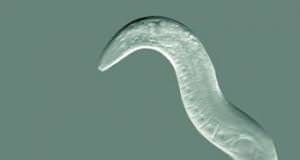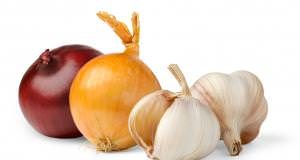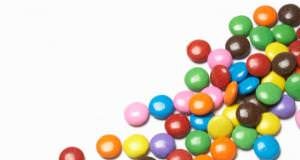Free Radicals Good for You? Banned Herbicide Makes Worms Live Longer
It sounds like science fiction – Dr. Siegfried Hekimi and his student Dr Wen Yang, researchers at McGill’s Department of Biology, tested the current “free radical theory of aging” by creating mutant worms that had increased production of free radicals, predicting they would be short-lived. But they lived even longer than regular worms! Moreover, their enhanced longevity was abolished when they were treated with antioxidants such as vitamin C.
Sleep Makes Your Memories Stronger, And Helps With Creativity
As humans, we spend about a third of our lives asleep. So there must be a point to it, right? Scientists have found that sleep helps consolidate memories, fixing them in the brain so we can retrieve them later. Now, new research is showing that sleep also seems to reorganize memories, picking out the emotional details and reconfiguring the memories to help you produce new and creative ideas, according to the authors of an article in Current Directions in Psychological Science.
The Key To Being Attractive (And Looking Healthy)? A Good Night’s...
If you want to look attractive and healthy, the best thing you can do is get a good night's sleep, finds research in the Christmas issue published on the British Medical Journal website. For the first time, say the authors, there is scientific backing for the concept of beauty sleep.
Garlic Could Protect Against Hip Osteoarthritis
Researchers at King's College London and the University of East Anglia have discovered that women who consume a diet high in allium vegetables, such as garlic, onions and leeks, have lower levels of hip osteoarthritis.
Asthma? Allergens Could Be Growing In Your Lungs
Scientists investigating the allergic reactions that asthmatics suffer towards a common mould have discovered that many people with asthma actually had the mould growing in their own lungs. The research led by University of Leicester scientists at Glenfield Hospital has been published in the December 2010 issue of the American Journal of Respiratory and Critical Care Medicine.
Compound Derived From Curry Spice Is Neuroprotective Against Stroke And Traumatic...
A synthetic derivative of the curry spice turmeric, made by scientists at the Salk Institute for Biological Studies, dramatically improves the behavioral and molecular deficits seen in animal models of ischemic stroke and traumatic brain injury (TBI). Two new studies suggest that the novel compound may have clinical promise for these conditions, which currently lack good therapies.
Feast, Famine And The Genetics of Obesity: You Can’t Have It...
In addition to fast food, desk jobs, and inertia, there is one more thing to blame for unwanted pounds-our genome, which has apparently not caught up with the fact that we no longer live in the Stone Age.
Despite Longer Life Spans, Fewer Years Are Disease-Free
Increased life expectancy in the United States has not been accompanied by more years of perfect health, reveals new research published in the December issue of the Journal of Gerontology. Indeed, a 20-year-old today can expect to live one less healthy year over his or her lifespan than a 20-year-old a decade ago, even though life expectancy has grown.
Whey Supplements Lower Blood Pressure: Low-Cost Protein Gets Big Results In...
Beverages supplemented by whey-based protein can significantly reduce elevated blood pressure, reducing the risk of stroke and heart disease, a Washington State University study has found. Research led by nutritional biochemist Susan Fluegel and published in International Dairy Journal found that daily doses of commonly available whey brought a more than six-point reduction in the average blood pressure of men and women with elevated systolic and diastolic blood pressures.
Thought For Food: Imagining Food Consumption Reduces Actual Consumption
If you're looking to lose weight, it's okay to think about eating your favorite candy bar. In fact, go ahead and imagine devouring every last bite -- all in the name of your diet. A new study by researchers at Carnegie Mellon University, published in Science, shows that when you imagine eating a certain food, it reduces your actual consumption of that food. This landmark discovery changes the decades-old assumption that thinking about something desirable increases cravings for it and its consumption.
Weightlifting Slashes Lymphedema Risk After Breast Cancer Treatment, Study Suggests
Weightlifting may play a key role in the prevention of the painful limb-swelling condition lymphedema following breast cancer treatment, according to new research from the University of Pennsylvania School of Medicine. Combined with the team's previous findings that the exercise limits a worsening of symptoms among women who already have lymphedema, the new data cements the reversal of long-running advice that breast cancer survivors should avoid lifting anything heavier than five pounds after they finish treatment.
New Blood Test Could Detect Heart Disease In People With No...
A more sensitive version of a blood test typically used to confirm that someone is having a heart attack could indicate whether a seemingly healthy, middle-aged person has unrecognized heart disease and an increased risk of dying, UT Southwestern Medical Center researchers have found.















